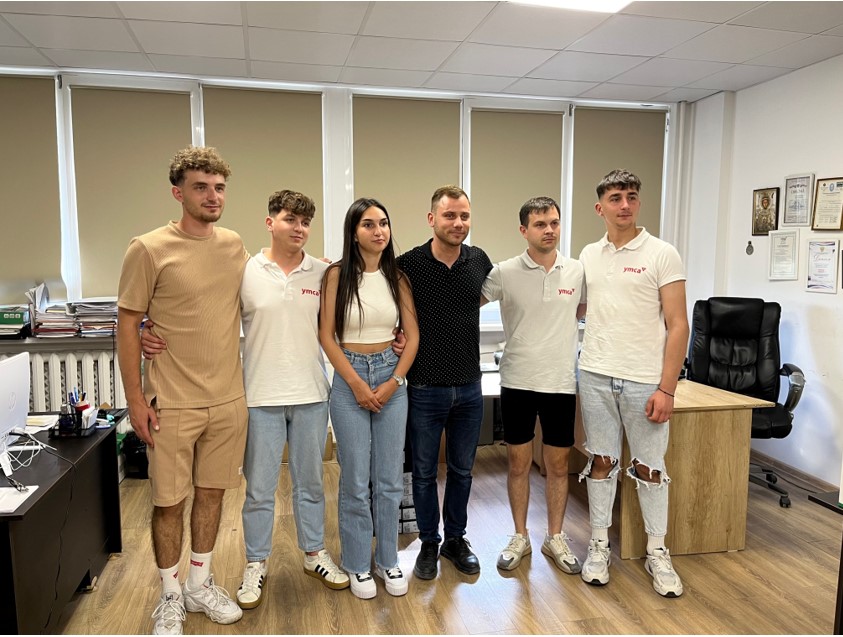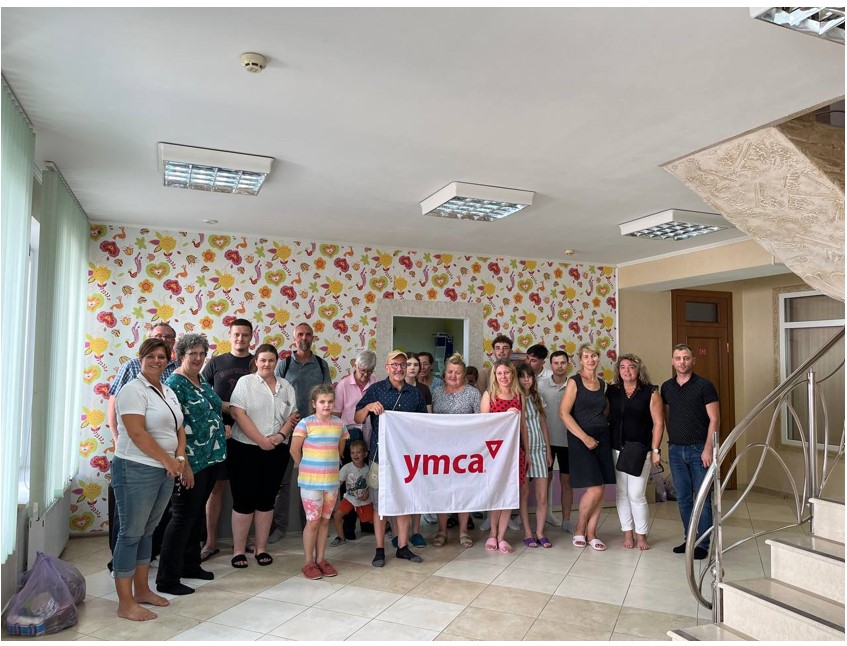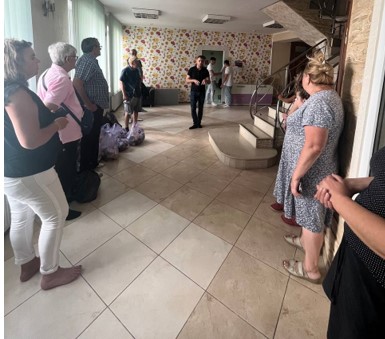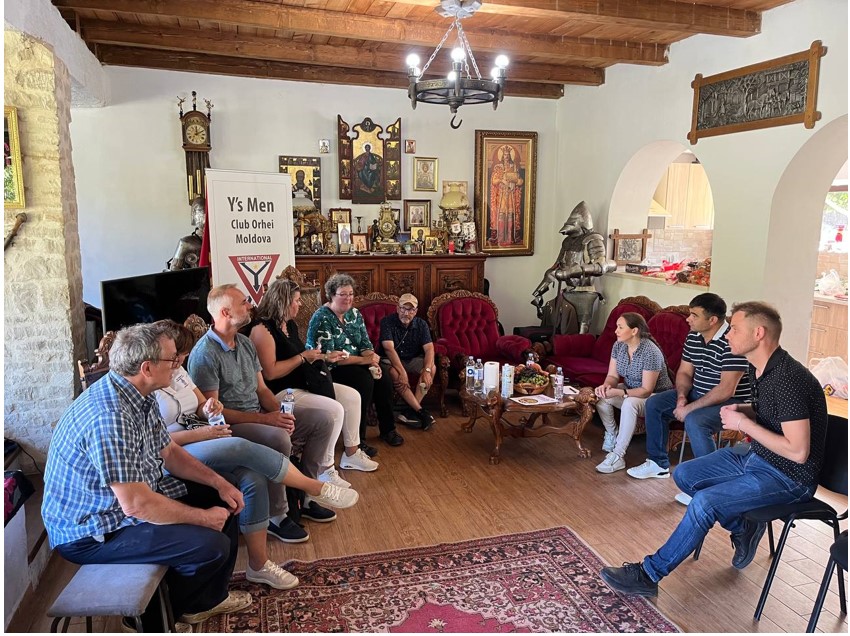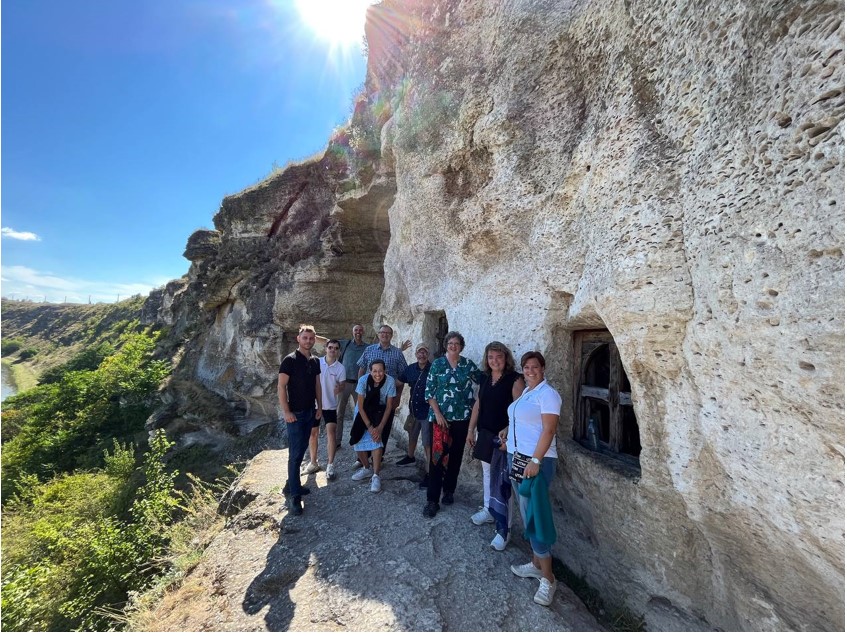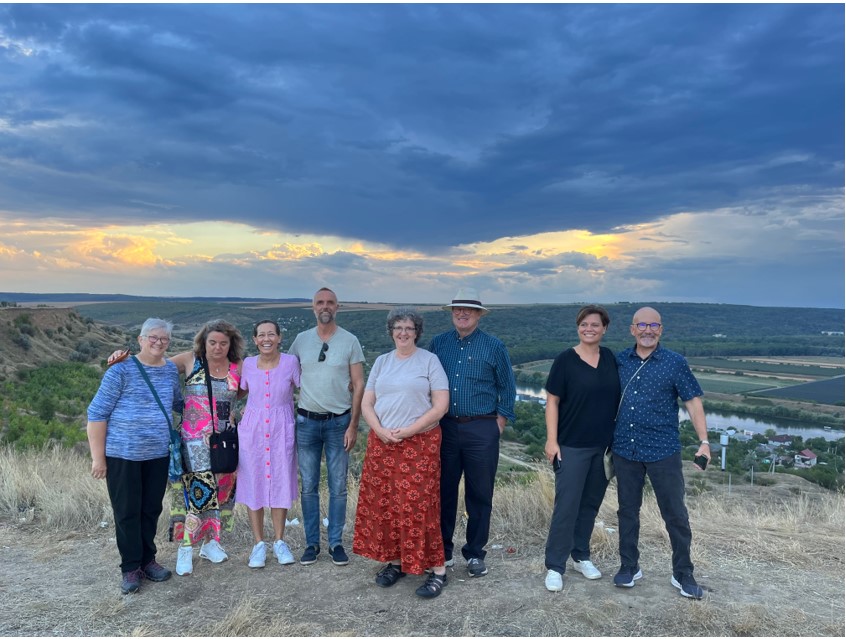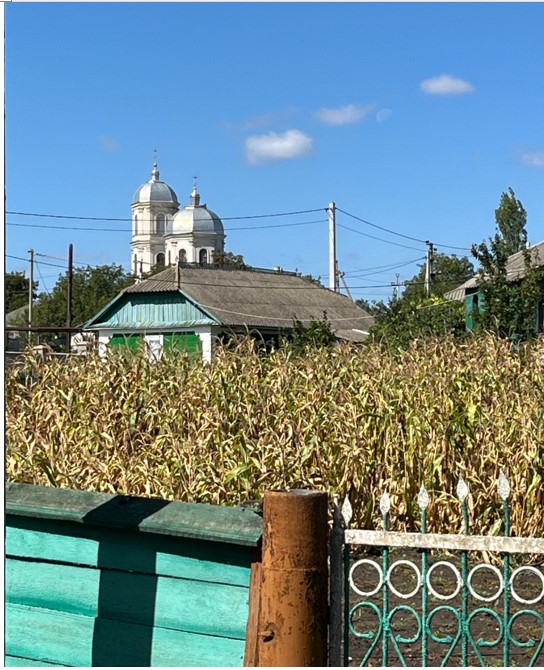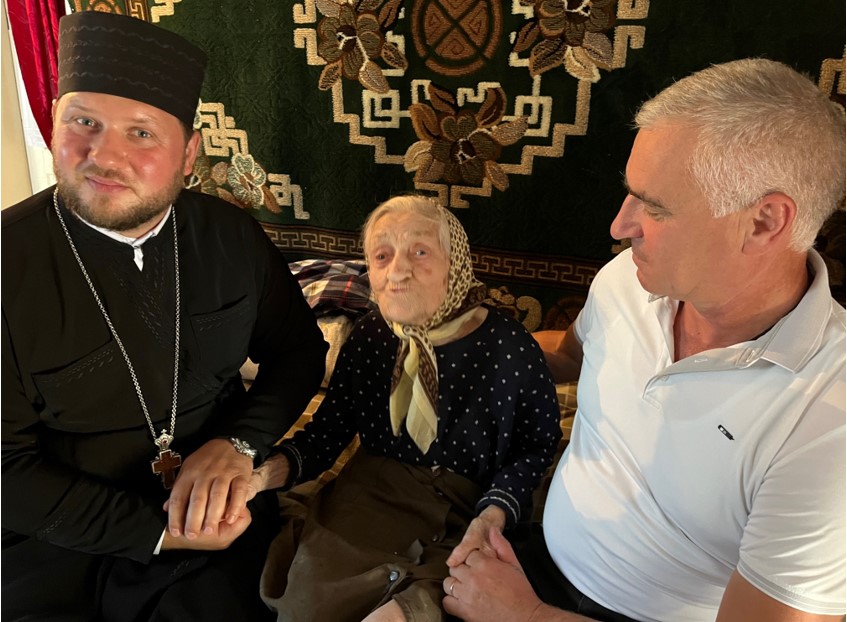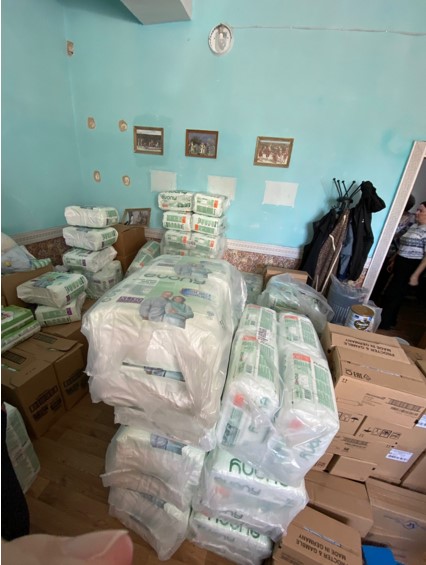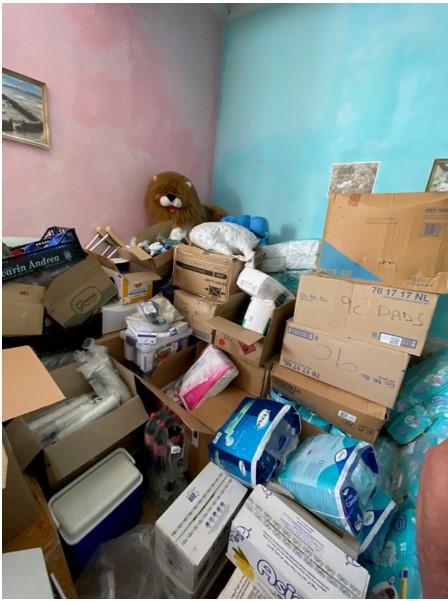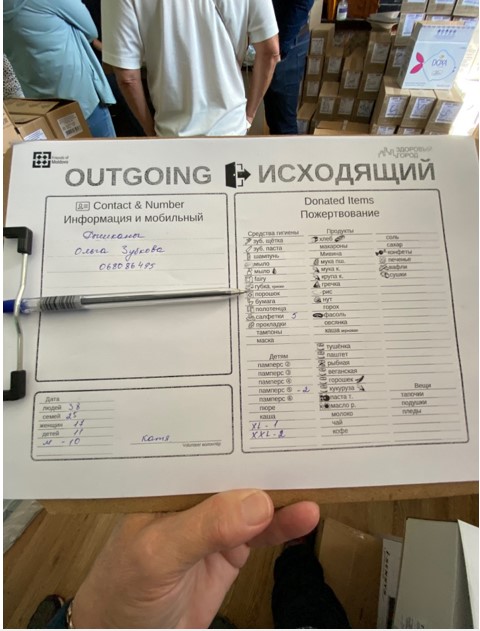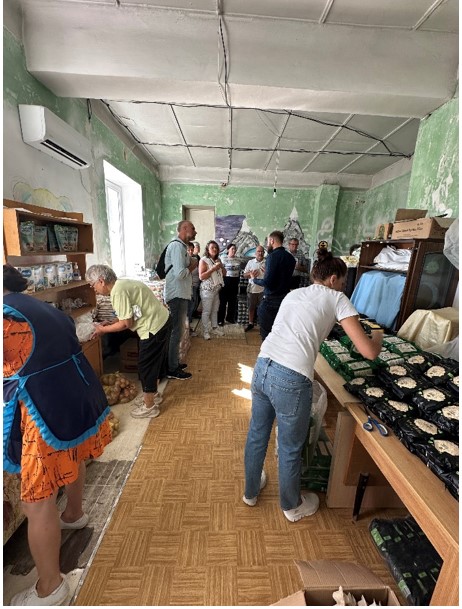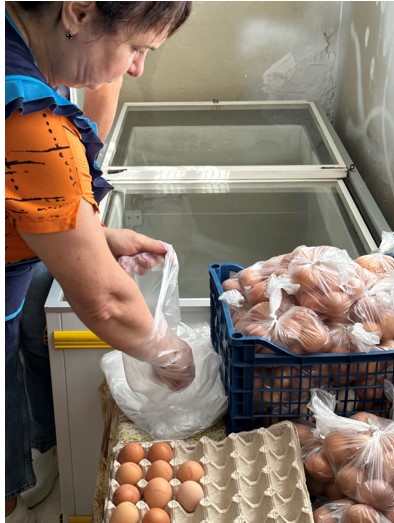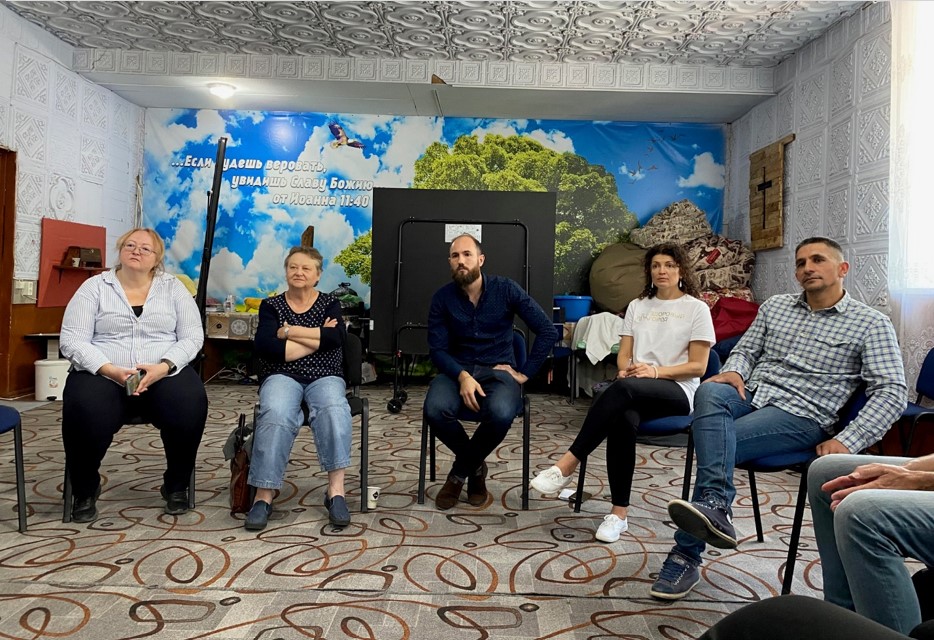A letter from Ellen Smith, mission co-worker serving in Russia, Belarus, Ukraine and Poland
Winter 2023
Individuals: Give online to E132192 in honor of Ellen Smith’s ministry
Congregations: Give to D500115 in honor of Ellen Smith’s ministry
Churches are asked to send donations through your congregation’s normal receiving site (this is usually your presbytery)
Dear friends,
In 2005, at a PC(USA) gathering in Atlanta, GA, the Russian Mission Network was established. The group that gathered was made up of people involved in the Congregational Twinning Program, but also those who were simply interested in Russia and PC(USA)’s engagement there. There were many churches involved and the gatherings over the years that followed grew in number and energy. As tensions in the region grew, particularly with the Revolution of Dignity in Ukraine (Maidan) and the subsequent annexation of Crimea by Russia, as well as the Russian support of the separatist movement in the Donbas, the network began listening to what I shared about the broader region.
A number of members joined trips to learn more about the war in Ukraine (the war that began in 2014). In 2019, the Presbyterian Peacemaking Office hosted a travel study seminar to Belarus, Ukraine and Russia to listen to partners from both Ukraine and Russia, closing the conference in what was then a neutral space in Belarus. In the fall of 2019, the network expanded to become the Belarus-Ukraine-Russia Mission Network. With the full-scale Russian invasion of Ukraine in February 2022, the network’s focus largely shifted to the fate of Ukrainian internally displaced people (IDPs) and refugees. The ties that churches have had with their Russian brothers and sisters have not been forgotten, but it is increasingly difficult to communicate with one another – and it is unsafe for the many Russian friends. So where do they go from here? That has been the question.
In March of this year, I traveled with members of the BURM network to Lithuania to introduce them to partners in that country working with refugees and working/studying issues of peace. Reconciliation is still far off. It was a listening trip, to hear from those sitting on the border of both Russia and Belarus (a tense place to sit).
In September, I traveled with members of the BURM network to Moldova and Romania (Transylvania), to introduce them to partners there. This was another listening trip to hear the perspective of people on the border of Ukraine. Moldova was one of the 15 republics of the Soviet Union. With the dissolution of the Soviet Union, Moldova declared its independence on August 27, 1991, but a strip of land on the east bank of the Dniester River has been under Russian occupation since the 1990s. It had been the poorest country in Europe, though the war in Ukraine has now left Ukraine in that unfortunate position.
Moldova was neglected within the Soviet Union. Largely a region of agriculture, there was insufficient development, and the collapse of the Soviet Union was chaotic, leaving people impoverished. Initially, people traveled to Russia for temporary work in construction projects, oil fields and other industries. More recently, most have turned to the West, many going to Romania and Italy. Often, they have left behind their elderly parents and their school-aged children, creating another kind of crisis. Moldova is vulnerable, but they have not hesitated to reach out in extraordinary ways to the many refugees who flooded into their country. One of the challenges, however, is that aid has come in for refugees, but the Moldovans themselves are struggling. The partners we visited are keenly aware and working to find ways to address all the needs. The country has become both a sending and receiving country in the migration cycle.We spent a week visiting partners in different parts of the country.
YMCA Moldova has offices in Chisinau, the capital. It only recently received full membership in YMCA Europe, but has been actively engaged in youth ministry, eco-justice, refugee relief and development in rural areas. When the refugees started pouring into the country in February 2022, they were at the border to help receive people. They were soon able to open a refugee center in Chisinau, that is still receiving people. With the help of Presbyterian Disaster Assistance, they started a program in rural areas, where many of the refugees are living, that provides legal assistance, support for finding employment psychosocial support, and food assistance to address issues of food insecurity. Hewlett Packard donated thousands of computers to Moldova and asked YMCA Moldova to distribute them. They contacted schools and educational institutions all over the country and set to work. Now, they are establishing digital education hubs to accelerate digital equity for young people, refugees and marginalized communities. It was a joy to spend time with YMCA Moldova because they truly love their country and want to find ways for Moldova to thrive so that people don’t feel the need to emigrate.
From Chisinau, we traveled north to Edinet, so that we could visit the village ministry of Moldovan Christian Aid. Parcova is a village 8.5 miles from Edinet. Like so many other villages across Moldova, the population is mostly elderly and struggles. The parish, in partnership with the Kerk in Actie, established a program for youth leadership development that engages the youth to support the elderly. The parish purchased a washing machine so that the youth could gather laundry and wash it. There is companionship and help with repairs. It is an inspired project. The village next door, Fantana Alba, would love to have such a project too. We visited elderly and disabled families, who received us warmly. The vision of the priest and the mayor for their community is good. The partnership has helped it to move forward.
Our last day in Moldova carried us to Balti, halfway between Chisinau and Edinet. When the refugee crisis began, a Roma man from a church in Balti could not sit back and do nothing. With few resources, the doors of the church were opened and he found a friend to help expand what they were able to do. They began by welcoming refugees and providing temporary housing on the floor of the church. They then moved into food distribution. With the help of Church World Services, they have expanded the operation to include a clothing closet, medical support, job training, legal support, and psychosocial care. Knowing the challenges of Moldovans, they have expanded the services to provide for them as well at a ratio of 70% Ukrainians and 30% Moldovans. They serve the city of Balti and the small towns to the north of Moldova. The center in Balti has employed refugees to enable them to expand the ministry. They are well aware of the needs of those they serve.
The BURM Network will be holding its annual conference this year at the Presbyterian Church of the Cross in Omaha, NE on November 2 – 4, 2024 (beginning on Thursday evening and concluding at noon on Saturday. Please consider joining the gathering, either in person or online. They have excellent speakers and will be looking at issues across Eastern Europe. They also want to discuss “Where do we go from here?” Come be part of the conversation.
Watch for another newsletter on our time in Romania.
Ellen
Please read this important message from Director of World Mission Rev. Mienda Uriarte
Then the King will say to those at his right hand, ‘Come, O blessed of my Father, inherit the kingdom prepared for you from the foundation of the world; 35 for I was hungry and you gave me food, I was thirsty and you gave me drink, I was a stranger and you welcomed me, 36 I was naked and you clothed me, I was sick and you visited me, I was in prison and you came to me.’ Matthew 25:34-36
Dear friends,
Great things are happening in World Mission! As you know from the letters you’ve been receiving, our mission co-workers are at the forefront of showing us what Matthew 25 looks like in the U.S. and in the wider world. They are addressing issues related to eradicating systemic poverty, building congregational vitality and dismantling structural racism. Together with our partners, mission co-workers are engaged in life-transforming ministries in 80 countries around the world. Here are just a few examples:
As an education consultant in the Democratic Republic of Congo, José Jones assists the Presbyterian Community of Kinshasa (CPK) education department in the development, implementation and evaluation of strategic plans to strengthen the church’s primary and secondary education programs for more than 350 schools.
Based in Manila, Rev. Cathy Chang works closely with the United Church of Christ in the Philippines (UCCP) and other partners in ministry to engage programs and networks across Asia that advocate for people vulnerable to forced migration and human trafficking.
Nadia Ayoub works alongside our Greek partners as they faithfully hold to the biblical call to welcome the stranger. Nadia serves with Perichoresis, a ministry of the Evangelical Church of Greece that provides housing and support to refugees; most of whom have come to Greece from Arabic-speaking countries.
Joseph Russ strengthens and supports a network of partners working in El Salvador, Guatemala and Honduras to address migration issues in the Northern Triangle. Based on the needs people on the ground identify, Joseph empowers U.S. congregations to engage in advocacy related to Central America and immigration reform.
Revs. Drs. Noah Park and Esther Shin serve as professors at the Evangelical Theological Seminary in Cairo (ETSC). ETSC graduates work toward revitalizing congregational ministries in Egypt and work with refugee and peace ministries in various countries in the Middle East.
Please consider giving an extra gift this year to support our mission co-workers as they walk alongside our partners and help shape a more life-giving, equitable and hopeful world!
Prayerfully,
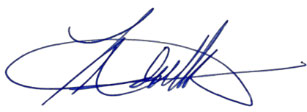
Rev. Mienda Uriarte, Director of World Mission
Presbyterian Mission Agency
Presbyterian Church (U.S.A.)
To give online, visit https://bit.ly/23MC-YE.
Honorary gifts can be made by checking the box and writing the mission co-worker’s name in the comment field online.
![]() You may freely reuse and distribute this article in its entirety for non-commercial purposes in any medium. Please include author attribution, photography credits, and a link to the original article. This work is licensed under a Creative Commons Attribution-NonCommercial-NoDeratives 4.0 International License.
You may freely reuse and distribute this article in its entirety for non-commercial purposes in any medium. Please include author attribution, photography credits, and a link to the original article. This work is licensed under a Creative Commons Attribution-NonCommercial-NoDeratives 4.0 International License.
